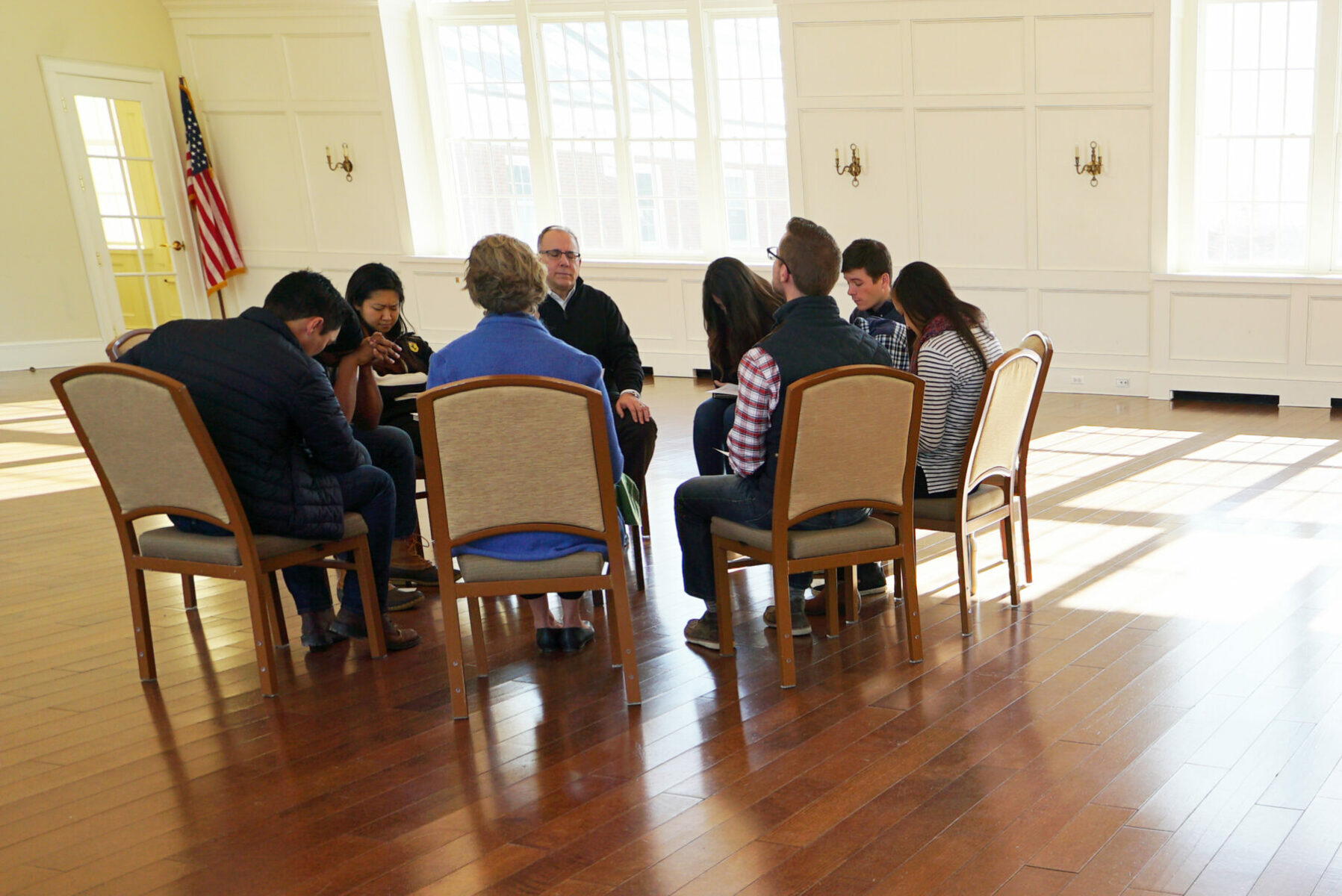Attentiveness: Wisdom

Dr. Scott W. Sunquist
Who is wise and understanding among you? Let them show it by their good life, by deeds done in the humility that comes from wisdom. But if you harbor bitter envy and selfish ambition in your hearts, do not boast about it or deny the truth. Such “wisdom” does not come down from heaven but is earthly, unspiritual, demonic. For where you have envy and selfish ambition, there you find disorder and every evil practice. But the wisdom that comes from heaven is first of all pure; then peace-loving, considerate, submissive, full of mercy and good fruit, impartial and sincere. Peacemakers who sow in peace reap a harvest of righteousness. (James 3:13-18)
Gordon-Conwell Theological Seminary: where scholars are disciples and disciples are scholars. It is an aspiration that I hope can be an inspiration for Gordon-Conwell faculty and students.
We have been talking about the need to make sure seminary is not just a graduate school but is also a school of Christ. We would like our Discipleship Experience and Pierce Center for Disciple Building to be seamlessly woven into the academic and community experience of every student. I can imagine that discipleship discussions will involve parsing Greek verbs, and I can imagine that classes on Christian history may lead to prayer and confession, even singing hymns of praise.
We are talking about the difference between knowledge and wisdom, between what is fully Christian (en Xristou: in Christ) and what has been rent asunder by the Enlightenment. Again, it is an aspiration for us. Something that will have to be discussed, prayed over, and then fully absorbed by the community of scholars, beginning with the faculty.
Wisdom, as described by James in chapter three, is high, lofty, heavenly, and lived. Wisdom is primarily described as a “good life” shown by deeds done in humility.[1] Humility, for the early Christians, was the supreme virtue, shown most vividly in the life of Jesus Christ. It is so very other worldly today to talk about a very, very wise person as a person who is very, very humble. But that is what it is. Humility is the life-blood of wisdom.
James then takes time to make sure we understand the opposite (3:14-16). The person who is not wise: has envy, is selfish, bitter, has ambition, denies the truth, is disordered, evil, unspiritual, and even demonic. These are extreme statements, but like any other vice lists we are often caught by surprise, seeing some obvious characteristics, but then we see some that expose us. We are all against evil and what is demonic, but having ambition and being a little envious? These attitudes and feelings lead to actions that hurt and create disorder.
So we want, in all we teach, in how we worship, in our times around the table, and in what we read, to affirm wisdom. How do we recognize it? Wisdom is humble, pure (holy), peaceful and peace loving, considerate, submissive, sincere, and merciful. If these characteristics seem like abstract nouns to you remember this: Wisdom has a name.
Jesus is the name and personification of Wisdom. He is our model, our Savior, our friend, and our life. Becoming wise is putting on Christ, and, therefore, taking on his apostolic nature, for the wise are sent into the world as ambassadors. Discipleship is unto mission.
[1] See an earlier post for a similar discussion: “Christ-likeness & Culture.”
 Scott W. Sunquist, the President of Gordon-Conwell Theological Seminary, writes a weekly blog, “Attentiveness” which is posted each Tuesday on the Gordon-Conwell web site. He welcomes comments, responses, and good ideas.
Scott W. Sunquist, the President of Gordon-Conwell Theological Seminary, writes a weekly blog, “Attentiveness” which is posted each Tuesday on the Gordon-Conwell web site. He welcomes comments, responses, and good ideas.